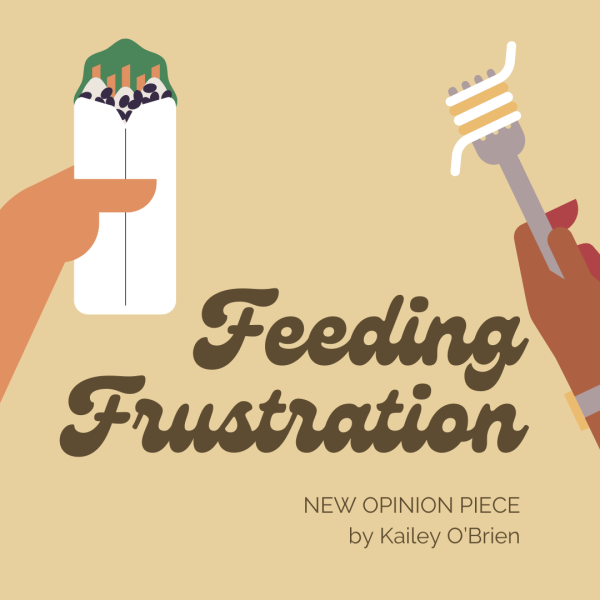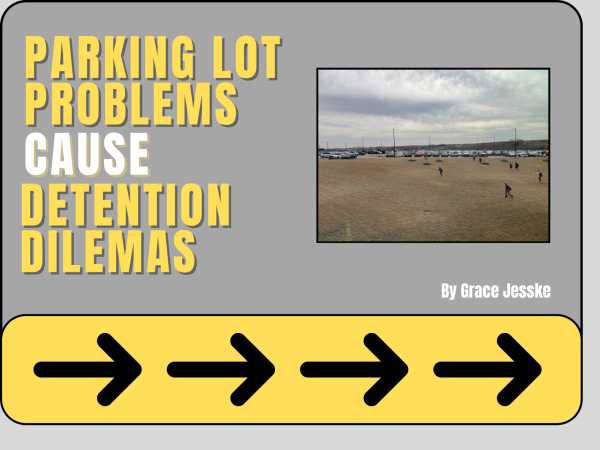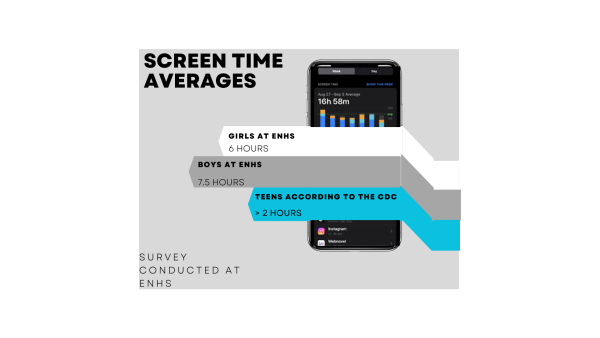The Future of Women in America: Roe V. Wade Overturned
An in-depth look at the historic and controversial decision of Roe v. Wade

A leaked draft of a US Supreme Court opinion on May 2, 2022, forever altered the future of America as the decision of nine Supreme Court Justices sent shockwaves across the country.
On January 22, 1973, the Supreme Court ruled the ban on abortions to be unconstitutional, thereby legalizing abortions and enforcing Roe v. Wade for years to come.
Then, on May 2, 2022, Politico published a leaked draft of the Supreme Court’s decision to pass Dobbs v. Jackson Women’s Health Organization, which overruled 50 years of abortion rights and overturned the historic Roe v. Wade case. According to NBC News, the Supreme Court verified the leaked draft, and Chief Justice John Roberts called the leak an “egregious breach” of the court’s trust.
Throughout the years, both advocates and critics of abortion have debated their legalization. With this historic overruling, discussion over the right to an abortion has new vigor. Just 24 hours after the draft was leaked, pro-choice supporters quickly stormed the Supreme Court building, expressing anger and despair through protesting and tears while pro-life supporters celebrated a victory as many cheered on the Supreme Court justices for their decision.
Prior to the ruling of Roe v. Wade in 1973, abortion was outlawed throughout the country beginning in the 1880s. Many women who wanted to terminate a pregnancy were forced to travel out of the country to receive an abortion.
However, not all women could not afford the luxury to travel abroad, thus resorting in illegal self-induced abortions, also called “back-alley” abortions. According to HISTORY, the number of illegal abortions performed from the 1950s-1960s was estimated from 200,000 to 1.2 million per year.
In 1969, Norma McCorvey, a 22-year-old woman from Texas, wanted to terminate her pregnancy after giving birth to two children who she put up for adoption. McCorvey, unmarried and from a challenging upbringing, resorted to a “back-alley” abortion but was unsuccessful. Due to Texas’s abortion laws, which stated that an abortion could only be provided to save a woman’s life, McCorvey had no access to an abortion, so she sought help from attorneys Linda Coffee and Sarah Weddington.
McCorvey’s 1969 lawsuit was eventually appealed and taken to the US Supreme Court where she was known as “Jane Roe.” After three years of fiery debates and protests across the country, the Supreme Court struck down the Texas law on January 22, 1973 and legalized abortions throughout the country in a 7-2 decision.
Justice Harry Blackmun wrote the majority opinion declaring that a woman’s right to an abortion is protected by the 14th Amendment in the right to privacy.
Roe v. Wade became one of the most influential Supreme Court rulings in US history, triggering years of political debates. States across the country implemented state laws regulating abortions. Many democratic states, such as California and Illinois, eased their abortion laws, while in contrast, many republican states, such as Alabama and Arkansas, restricted the right to an abortion, making it difficult for women to seek the procedure.
Many cases have challenged the 1973 Roe v. Wade ruling, most notably, Planned Parenthood v. Casey. In 1988 and 1989, Pennsylvania law restricted access to abortion, and pro-choice supporters felt these restrictions were a violation of the rights protected by the former Roe v. Wade ruling. On June 29, 1992, the Supreme Court reasserted its rulings while also supporting most of Pennsylvania’s abortion laws. In a 5-4 decision, the Supreme Court instilled a new standard in determining a state’s ability to restrict abortions.
Planned Parenthood v. Casey and other similar cases have failed to overturn the ruling of Roe v. Wade until Dobbs v. Jackson Women’s Health Organization was introduced. In 2018, Mississippi passed the “Gestational Age Act,” which prohibited abortions after 15 weeks of pregnancy. Jackson Women’s Health Organization, the last abortion clinic in Mississippi, challenged this law, and, on June 24, 2022, the Supreme Court passed Dobbs v. Jackson Women’s Health Organization, officially overturning Roe v. Wade and abandoning almost 50 years of precedent.
PRO-CHOICE
Since the Supreme Court’s leaked draft overturning Roe, many women share a growing concern over their right to bodily autonomy.
In a recent poll by Gallup, 55% of women consider themselves pro-choice, up 6% from the previous year. History teacher Melissa Peterson shares her response discusses the meaning behind the term “pro-choice.”
“In general although not everyone falls into this belief, pro-choice is a group of people that believe women should have autonomy,” Peterson said. “They should be able to make a decision about their own body without the government being involved.”
Recently, there has been a wider audience for the pro-choice movement amongst teenagers and adults. According to a Gallup poll, there is an 8% increase in women ages 18-34 having pro-choice beliefs from May 2021-May 2022. Among this demographic is senior Piper Connelly. Connelly’s abortion beliefs first stemmed from her love in politics. As she has great ambitions to become a politician in the future, Connelly researches timely issues that have great concern in the world and this brought her to the messy world of abortion rights.
“The more research I’ve done about Roe v. Wade, the more I realize that it’s nobody’s business but your own what you do with your body, and that’s true for anything,” Connelly said. “It’s your choice and it’s your life and nobody should be telling you what you should do with your life.”
Many pro-choice believers align with the “my body, my choice” mantra as a demand to get their right to bodily autonomy back. With the access to abortions limited, many pro-choice believers feel that their future is at stake. Another pro-choice believer in Elkhorn North, who asked to remain anonymous, shares her overwhelming concern for her future. For the sake of avoiding confusion, this student will be given the alias “Sophie”.
“It (the overturn of Roe v. Wade) has definitely made me feel concerned about my future and not because I plan on getting an abortion, but because my rights are literally getting taken away from me and that is terrifying,” Sophie said. “It makes me think, what’s next? My voting rights? My right to a lawyer in the court of law? It also makes me worried for my future children. It made me question if I even want to bring children into this world under such cruel injustice.”
With the availability of abortions growing slimmer and slimmer, many reflect on how the access to an abortion was like prior to the overule of Roe.
“In my opinion, I feel that having that ‘blanket law’ was enough because it made it legal to have an abortion. It undeniably said that you can have an abortion if you want one,” Connelly said. “Although I think more work could’ve been done in terms of government facilities and giving abortions to women, I think that, as a whole, access to an abortion was sufficient enough before the overturn of Roe v. Wade.”
It was no surprise that both Connelly and Sophie felt an immense wave of distress and anger when their right to an abortion was taken away by the government.
“The overturn of Roe v. Wade left me absolutely devastated. It left me shocked that men who are not educated on the subject had the power to take away the rights of every single woman/non binary in the US,” Sophie said. “It feels like we are going back in time when women had no rights over anything. Not only is it a step back for women but it’s a step backwards for America because more minorities could lose their rights as well.”
Similar to Sophie, Connelly expresses her growing concern about the recent overrule of Roe.
“The day the decision came out, I was sobbing. It’s terrifying to me because the government said that these nine judges, sitting in the court, get to decide how my life gets to be lived,” Connelly said. “If I get pulled into an alley and get raped and find out I’m pregnant, it’s now illegal for me to abort that pregnancy. I don’t have that security that if something bad happens to me, I won’t be able to take away that damage.”
With the future for women in America changed indefinitely, many pro-choice believers question their “equality” as what they believe their constitutional right getting taken away. With the Supreme Court’s official overturn, it is now up to the states to decide whether or not to legalize abortions in their state.
According to Nature, several states, such as Texas, Oklahoma, and Arkansas, have placed “trigger bans” meaning that as soon as Roe was overturned, they officially banned abortions. Other states, such as California, New York and Maryland continue to keep abortions legal and have even further opened up options for the procedure, inviting women who are unable to get access to an abortion to seek help in these states.
With the Supreme Court’s disputed overturned decision reign the country, many pro-choice believers continue to fight for their right to an abortion.
PRO-LIFE
Though 55% of women identify as pro-choice, there is also a significant number of women with pro-life beliefs. Gallup states that 39% of women believe they are pro-life. With the pro-life argument now in the spotlight, it is vital to discuss what it means to be pro-life and how the overturn of Roe will affect the future of these pro-life supporters.
“Pro-life believers are people who strongly believe that life should be protected. So a woman, unless there is some extreme circumstance, should not be able to have an abortion, what often times they think as commit murder to an unborn child,” Peterson said.
A person’s own belief will always stem from something whether it is being influenced by a friend or reading an article about the issue. Beliefs on abortion are not any different. One student, who wishes to be anonymous, shared where her abortion beliefs originated. For the sake of avoiding confusion, this student will be given the alias “Sarah.”
“My beliefs started from what my religion itself has taught me,” Sarah said. “I view abortion as wrong but there is circumstances where I know it should be used whether it be because of rape or because the mother is not medically able to give birth without complications.”
Like Sarah, the beliefs of many pro-life supporters stem from religion. In a study conducted by PEW Research, followers of several religions do not agree on the basis of abortions, including Catholics (47% against abortions), Evangelical Protestants (63% against abortions), and Mormons (70% against abortions).
While many pro-life supporters refer to religion, others believe that abortions are morally wrong and that abortions are viewed as murder on an unborn fetus.
One student at Elkhorn North, who also wishes to stay anonymous, aligns with this belief. For the sake of avoiding confusion, this student will be given the alias “Kate.”
“My take on abortion is very mixed as there is no yes or no answer for me.” Kate said. “Personally, I believe that every baby is innocent no matter who their parents are, they start with a clean slate. I have seen how abortions take place and they aren’t pleasant for the mother and especially not the child. I am Pro-Life, however under circumstances of rape or medically suggested.”
In response to the pro-choice mantra “my body, my choice,” many pro-life supporters state that abortion isn’t a choice for women as they impact both a woman and an unborn child. Abortions are seen as inhumane and the act is committing murder on an unborn child.
According to WebMD, a woman can seek an abortion three different ways based on how far along the mother is in her pregnancy: abortion medication, suction abortion, and dilation and extraction abortion.
Though the pro-life supporters triumph over their victory of the overturning, some such as Sarah and Kate, share some clouded concern with the new ruling.
“I was unsure of how I felt at first,” Sarah said. “Obviously I am happy that there will be places where abortions won’t be legal, but I am concerned this will start unsafe abortions and won’t give access to abortions to people who medically need it.”
Like Sarah, Kate voices similar concerns.
“It’s made me a little concerned about my future, because without the legalization of abortion, those that have been raped or medically unable, won’t have access to a safe and monitored abortion” Kate said.
While many pro-life supporters celebrate the overturn, many still question the overall effect of overturning the ruling of Roe v. Wade.
Final Thoughts
Since the original ruling of Roe v. Wade in 1973, the issue of abortion has had a prominent place in the political scope for many years. Those siding as pro-choice or pro-life are in a political tug-of-war.
“Abortion is something the Republican party has been working on overturning for many years,” Peterson said. “It’s just been with the three Trump appointments to the Supreme Court that they had the power to make a change, (since) there hasn’t been a conservative enough Congress to overturn Roe v. Wade.”
Government officials arguing over abortion rights has caused waves of protesting across Washington D.C., local towns, and even amongst loved ones who share opposing viewpoints on abortions. With abortion being such a problematic topic in the country, it can be difficult to stay open-minded about opposing beliefs.
“I don’t act differently towards people who have opposite views,” Kate said. “Everyone has their own experiences and things that they have been through and I have no place to tell them that what they believe in is wrong just because it’s not like my views.”
With the tension in the country currently, especially regarding controversial issues, it can be difficult to talk about sensitive topics. Many worry about creating conflict between people and their beliefs. However, there is a plus side to discussing these delicate topics.
“At the congressional advisory, I talked to our representative Congress Don Bacon about abortion rights in America,” Connelly said. “He obviously doesn’t agree with me and will never agree with me. But I had a really great conversation with him about abortion rights and we both were able to give facts about abortions.”
“By the end of the conversation, we both had more knowledge about abortion than we did when we walked in and that’s because we’re both willing to set aside our differences and just purely look at it at a human standpoint rather than a one-sided standpoint.”
In the wake of the overturn, President Joe Biden has signed an executive order that
allows women to travel out of state to receive an abortion on August 3, 2022, according to CNN while the Supreme Court continue to enforce their overturn in the country.
As the government butt heads with each other about the issue, tension between pro-choice and pro-life have never been greater. Unless a solution is found, division between the two sides will continue to grow rapidly.
Your donation will support the student journalists of Elkhorn North High School. Your contribution will allow us to purchase equipment and cover our annual website hosting costs.











